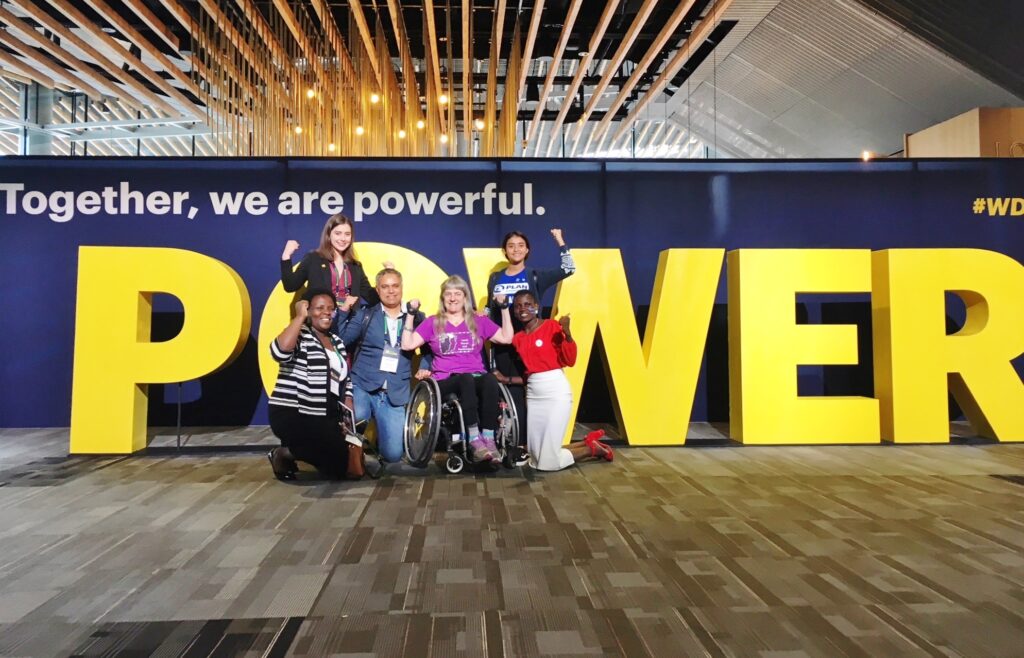This post was originally contributed to the American Foundation for the Blind’s (AFB) Family Connect publication. NCDE Project Coordinator Justin Harford discusses why parents should encourage their blind or disabled children to do an exchange overseas:
If I had my way, every blind or visually impaired student would have an experience of spending a semester or an academic year in another country, studying with non-US students in a non-US language. Of course, I am from a decidedly biased point of view. As a student who is blind and finished undergraduate studies at UC Berkeley in Latin American history in 2011, my summer in Mexico and my year in Chile were the high points of my college experience.
Yet often times, parents of blind or visually impaired young adults and the young adults themselves, have reservations about international exchange. “What if my son/daughter is unable to make friends or insists too much on getting help from their peers or teachers? What if they have cultural difficulties with people who don’t understand blindness or their visual impairment?”
In other cases, international exchange may not be the first thing that comes to mind as students and parents try to figure out the necessary steps to reach independence. Preparing for college can be overwhelming, first with applications, then deciding where to go, getting oriented to the new campus, and then figuring out the processes to request and receive disability-related accommodations.
Many blind or visually impaired students choose to go to a training center for the blind to build their confidence as a blind or visually impaired adult, which can add an extra step and delay college admission. Between that and all of the things that all students have to face including financial aid, meeting necessary course requirements to graduate with a major, making friends, and participating in extracurricular activities, it can be easy to simply tell one’s self that study or volunteer abroad is simply an extra diversion that will further delay graduation and add to the already steep cost of preparation for life and that after all… it’s not accessible anyway, right?
Not necessarily.
So why should your blind or visually impaired son or daughter study or volunteer abroad? Let me share five reasons.
5 Reasons Your Child Should Study Abroad
- Far from being a diversion to reaching adulthood, international exchange is a necessary step as it helps build one’s confidence and poise. When I was in Chile, people would tell me that they thought the idea of going to another country was frightening. Yet your child will reap the benefits from exploring the unknown. They will have the opportunity to negotiate an unfamiliar set of streets, a new transportation system or multiple new transportation systems, a different school, and different ways of doing things like shopping. By accomplishing things that they or other people might have considered impossible, they will learn about their own capabilities in the world.
- As your child negotiates all of these new systems, they will be challenged, and they will be placed in situations that demand creativity and composure thinking on one’s feet.
- They will have a more multicultural view of disability. There is no one way of getting things done. Definitions of accessibility vary from country to country. At the same time, Americans have many misconceptions about other cultures. For example, they assume that many people with disabilities from other cultures are hidden away. The experience of meeting people with disabilities from different cultural backgrounds and appreciating how they succeed using the cultural resources available to them can broaden one’s ideas about one’s self as a person with disabilities. Experiencing real discrimination possibly for the first time ever forces us to learn how to make difficult decisions of whether to fight or whether to let something go and to acknowledge that there are no black-and-white binaries of discrimination and rights, integration and segregation, access, or barriers.
- They will develop skills that they could not gain at home. For example, going abroad allows us to learn a new language. We learn how to work with a different currency and practice converting between different denominations. Not having access to traditional accessible systems, your blind or visually impaired child might have the opportunity to learn how to work with human readers or to use scanning and optical character recognition technology, which will be useful when they don’t have access to an alternative media service to convert printed material anymore.
- They will be more prepared to take on adulthood. As I was hinting at earlier, college is a wonderful place, but it often does not prepare students for what comes after. Blind students are especially susceptible to this gap in a world where so many jobs depend on the ability to read print or to navigate computer graphical interfaces that were designed with blind users as an afterthought if they were thought of at all. If your child did not have to problem-solve these issues in college, they will have to do so in a career when they encounter listings for office jobs that include discriminatory functional preferences such as the ability to type, see and drive a car, or when they need a reasonable accommodation after getting hired.
Conclusion
That is why you should encourage your blind or visually impaired son or daughter to consider an international exchange. It will be one of the best decisions that you and they will make.
NCDE is grateful for the opportunity to share our perspective with AFB. Click here to view the original publication.





